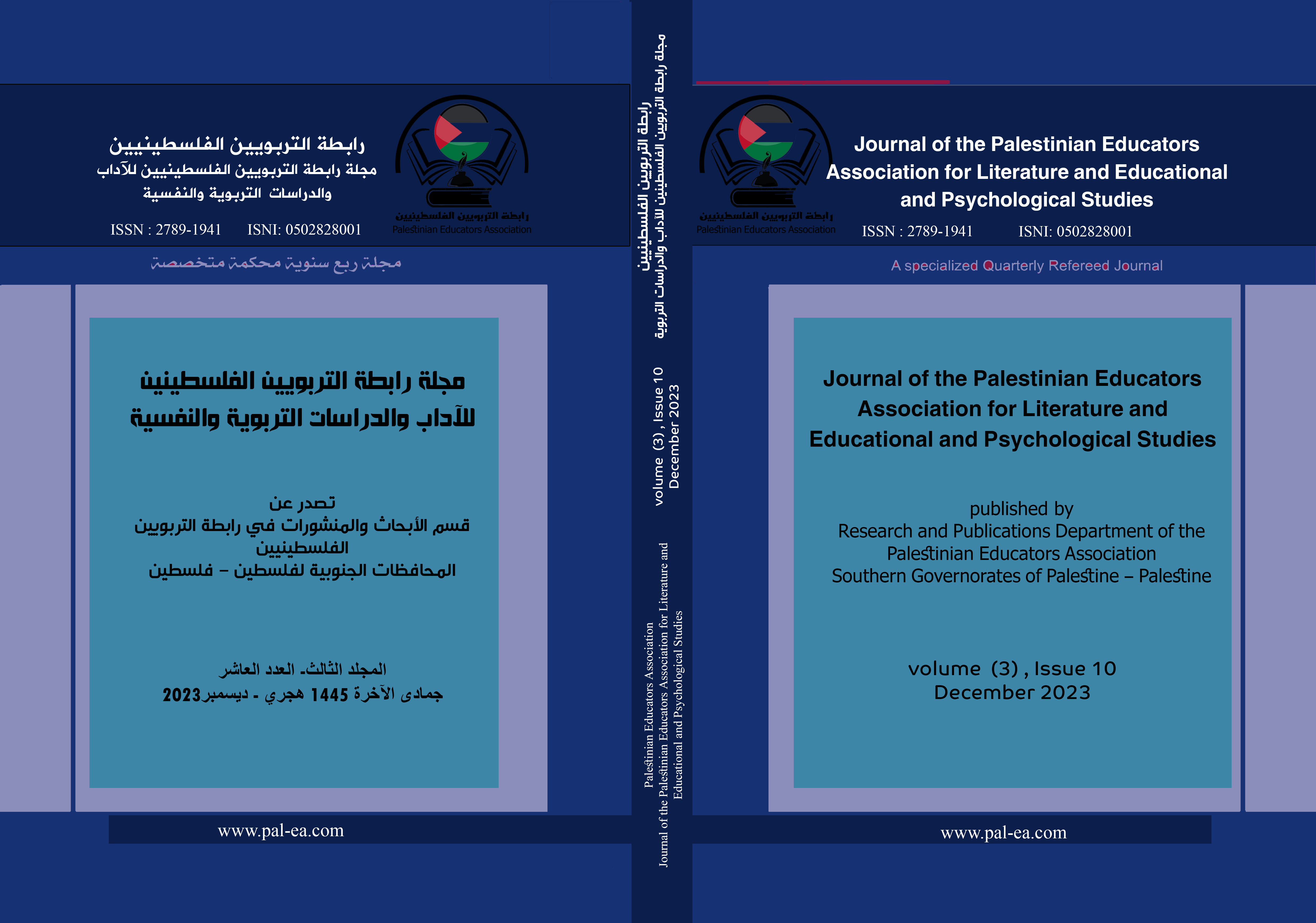A comparative study of education for sustainable development with the general education stages in Finland and Palestine
Abstract
The aim of this research is to shed light on the proposed vision of education for sustainable development in public education schools in Palestine in the light of the experiences of the State of Finland. The development process is slow due to the daily Israeli political and military interventions in Palestinian life and the interference in the policy of determining educational content and the curriculum taught by students at the primary and secondary levels, which impedes sustainable development in the Palestinian educational sector, and that the Finnish experience in education and sustainable development, if applied in Palestine, will be there. A great benefit and benefit to the development sector in the Palestinian education, as the Finnish education system is characterized by greater flexibility by adopting the principle of decentralization in the management of schools for their internal affairs, and it also works to prepare and develop teachers effectively, which is beneficial to the educational process and development. The most important of which is benefiting from the Finnish experience in education and employing it in serving the economy and developing sustainable development in Palestine, expanding technical and vocational education in Palestine in line with the requirements of the Palestinian market and economic needs, establishing more technical and vocational education institutes, and sending a group of teachers annually to Finland to learn their educational practices And their teaching method and transfer it to Palestine
Downloads
Downloads
Published
Issue
Section
License
Copyright (c) 2024 فلسطين عزات طه، محمد كامل سلامة (مؤلف)

This work is licensed under a Creative Commons Attribution-NonCommercial-ShareAlike 4.0 International License.
The Journal of the Palestinian Educators Association for Literature, Educational and Psychological Studies
E-issn: 2789-1941
Authors retain Copyright
The Journal of the Palestinian Educators Association for Literature, Educational and Psychological Studies allows Authors retain Copyright and grant the journal right of first publication with the work simultaneously licensed under a Creative Commons Attribution (CC-BY) 4.0 License that allows others to share the work with an acknowledgment of the work’s authorship and initial publication in this journal.
Provided they are the owners of the Copyright to their work, authors are able to enter into separate, additional contractual arrangements for the non-exclusive distribution of the journal’s published version of the work (e.g., post it to an institutional repository, in a journal or publish it in a book), with an acknowledgment of its initial publication in this journal.
Authors are permitted and encouraged to post their work online (e.g., in institutional repositories, disciplinary repositories, or on their website) prior to
and during the submission process.










